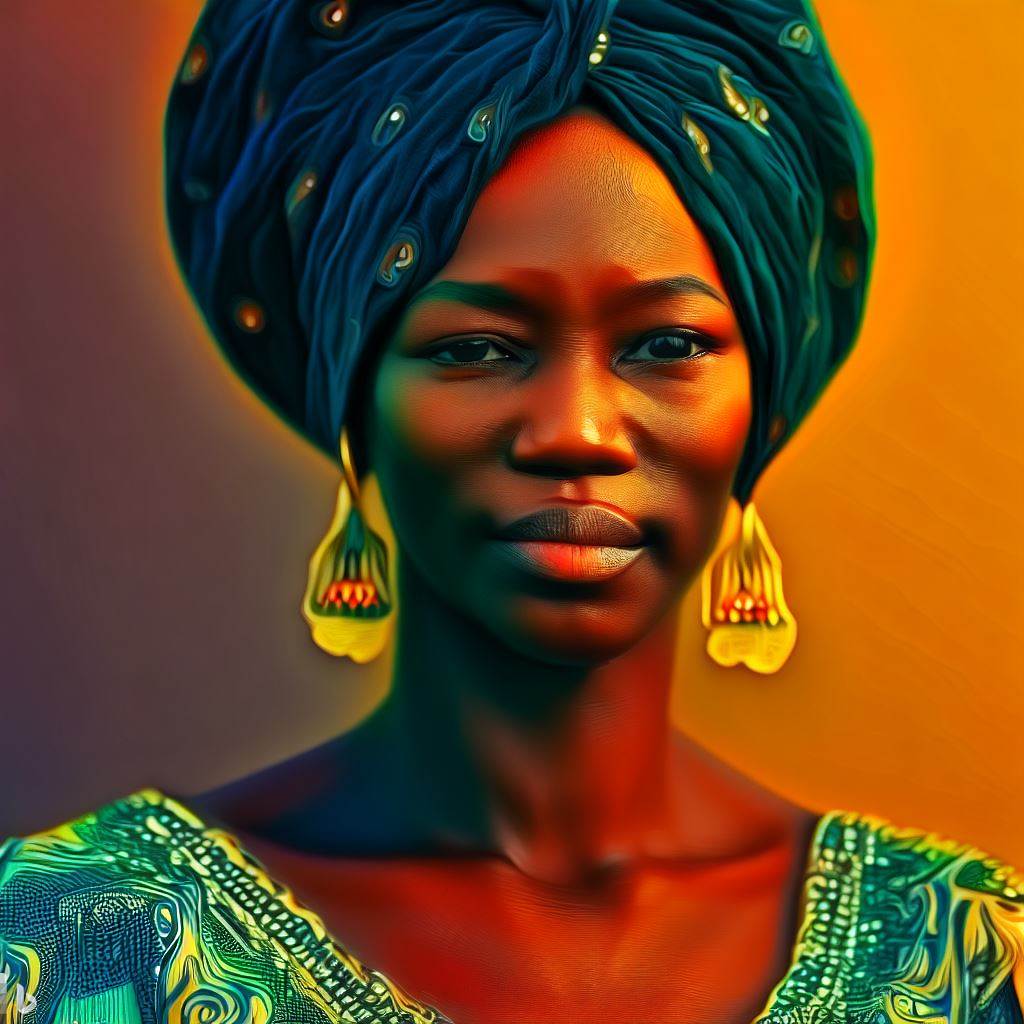Introduction
Let’s explore Nigeria Scriptwriters Balancing Creativity and Market Demand.
Nigeria’s film industry, known as Nollywood, has gained international recognition for its prolific output.
However, scriptwriters in this industry face a major dilemma – how to balance their creative vision with market demand.
This topic is crucial as it sheds light on the difficulties faced by scriptwriters in meeting the expectations of audiences, investors, and distributors, while also staying true to their artistic intentions.
The challenges Nigerian scriptwriters encounter are multifaceted. First, they must cater to the preferences of Nigerian audiences, who have diverse tastes and cultural backgrounds.
Additionally, they must consider the demands of foreign markets, often influenced by Western storytelling conventions.
Struggling to find the right equilibrium, scriptwriters can find themselves caught between creating unique narratives and conforming to commercial formulas.
To overcome these challenges, scriptwriters can explore innovative ways to infuse local cultural elements into their scripts while still appealing to a global audience.
Investing in market research and audience feedback can help scriptwriters identify the preferences and trends that will enable their work to resonate with the target viewers.
Collaboration with producers and directors who understand the delicate balance between creativity and commercial viability can also be beneficial.
Basically, Nigerian scriptwriters face a complex task of balancing creative expression with market demand.
The challenges they encounter require strategic navigation, embracing audience preferences while preserving unique storytelling.
By seeking symbiotic relationships with industry stakeholders, scriptwriters can overcome these obstacles and contribute to the growth and success of Nigeria’s film industry.
Understanding the Nigerian Film Industry
The Nigerian film industry, also known as Nollywood, has experienced rapid growth and gained global recognition.
This section will provide an overview of the industry, highlight factors contributing to its success, and examine the challenges it faces.
Overview of the Nigerian Film Industry
- Nollywood is the second largest film industry in the world, after India’s Bollywood.
- It produces an average of 2,500 films annually, surpassing Hollywood in film production volume.
- Nigerian films are known for their low budgets, quick production turnaround, and direct-to-video distribution.
Rapid Growth and Global Recognition
- In the early 1990s, Nollywood emerged as a result of economic and technological advancements.
- With the introduction of VHS tapes, filmmakers found a cost-effective way to produce and distribute films.
- Nigerian movies started gaining popularity among local audiences and within African diaspora communities.
- Nollywood’s influence expanded to other African countries and eventually reached audiences worldwide.
Factors Contributing to Success
- Accessibility and relatability: Nollywood films portray stories, cultures, and issues that resonate with Nigerian audiences.
- Low production costs: Filmmakers utilize available resources creatively, making films with limited funding.
- Localization: Nollywood embraces local languages, traditions, and settings, connecting deeply with Nigerian viewers.
- Talented and skilled scriptwriters, directors, and actors who continually push the boundaries of creativity.
Challenges Faced by Nollywood
- Quality control: Due to the quick production turnaround, some films suffer from poor production values and lack of originality.
- Copyright infringement: Nollywood has struggled with piracy, resulting in substantial revenue losses for filmmakers.
- Funding constraints: Limited access to financing options hampers the industry’s ability to produce high-quality films.
- Lack of distribution channels: Nollywood primarily relies on informal distribution networks, limiting international reach.
Essentially, the Nigerian film industry, Nollywood, has made significant strides in the global film landscape.
Its low-budget, locally rooted approach has resonated with audiences, leading to rapid growth and widespread recognition.
However, challenges such as quality control, piracy, funding constraints, and limited distribution channels still pose obstacles to its continued expansion.
In the following sections, we will delve deeper into the dynamics of balancing creativity and market demand in Nigeria’s scriptwriting industry.
Read: Scriptwriting Contests to Kickstart Your Career in Nigeria
The role of scriptwriters in Nollywood
Scriptwriters are crucial in Nollywood’s film success, crafting storylines, characters, and dialogues.
Their role involves:
- Balancing creativity and market demand.
- Conducting market research to understand trends and audience preferences.
- Collaborating with producers, directors, and stakeholders.
A well-written script serves as the foundation of a film, guiding actors, directors, and cinematographers. It captures and engages the audience’s attention.
Scriptwriters’ responsibilities encompass creative storytelling, character development, and dialogue writing, all pivotal for creating compelling films. They bridge the gap between artistic expression and audience appeal.
To strike a balance between creativity and market demand, scriptwriters conduct thorough market research.
This research informs them about current trends and audience preferences, enabling them to tailor their scripts accordingly.
Collaboration with production teams, including producers and directors, ensures that the script aligns with practical industry considerations like budget constraints and distribution requirements.
In summary, scriptwriters hold a vital position in Nollywood, harmonizing creativity with market demand.
Their scripts serve as the cornerstone of film production, captivating and guiding the audience through engaging narratives.
Through research and collaboration, scriptwriters bridge the gap between artistic vision and industry realities, contributing significantly to the success of Nigerian cinema.
Read: Cultural Influence in Nigerian Scriptwriting Practices
The challenges faced by Nigerian scriptwriters
- Limited funding and resources for script development: Nigerian scriptwriters often struggle to secure sufficient funding and resources to develop their scripts. This lack of financial support hinders their ability to fully explore their creative ideas and bring them to life on screen.
- Pressure to cater to market preferences and expectations: Nigerian scriptwriters face tremendous pressure to conform to market preferences and meet audience expectations.
This can limit their creativity and force them to cater to mainstream themes and storylines, neglecting innovative ideas that may not align with popular demand. - Overreliance on repetitive themes and storylines: Due to market demand, Nigerian scriptwriters often find themselves resorting to repetitive themes and storylines.
This results in a lack of diversity and originality in the content produced, as they feel compelled to reproduce successful formulas rather than explore new and unique narratives. - Lack of recognition and support for original and innovative scripts: Nigerian scriptwriters struggle to gain recognition and support for their original and innovative scripts.
The industry tends to favor established and conventional storylines, making it challenging for emerging talents to break through and showcase their fresh perspectives.
In short, Nigerian scriptwriters face multiple challenges in their quest to balance creativity and market demand.
Limited funding and resources hinder script development, while the pressure to cater to market preferences restricts their creativity.
The overreliance on repetitive themes and storylines further stifles their ability to showcase originality.
Additionally, the lack of recognition and support for innovative scripts poses a significant obstacle to the growth and success of Nigerian scriptwriters.
Read: Nollywood vs Hollywood: A Scriptwriter’s Perspective
Ways to balance creativity and market demand
- Collaboration between scriptwriters, directors, and producers: Through open communication and brainstorming sessions, these key players can work together to find a harmonious blend of creativity and market demand.
They can share ideas and insights, ensuring that the script remains captivating while still appealing to the target audience. - Seeking a balance between artistic expression and audience appeal: It is crucial for scriptwriters to remain true to their artistic vision while considering the preferences and expectations of the target market.
They can analyze popular trends and genres to create stories that are both unique and commercially viable. - Incorporating market research and feedback without compromising creativity: By conducting thorough market research and gathering audience feedback, scriptwriters can gain valuable insights into the interests and desires of viewers.
This information can be used to enhance the story without stifling the creative process. It is essential to strike a balance between meeting market demands and pushing boundaries. - Encouraging innovation and experimentation in storytelling: To maintain a balance between creativity and market demand, scriptwriters need to continually explore new narrative techniques and inventive storytelling approaches.
This can help captivate audiences while staying relevant in the ever-changing entertainment landscape.
Read: Nigeria’s Top Music Festivals and the Role of DJs

Success stories and examples
Highlighting successful Nigerian films that found a balance between creativity and market demand
Nollywood, Nigeria’s booming film industry, has witnessed the rise of several movies that struck the perfect balance between creativity and market demand.
These films achieved impressive success both domestically and internationally.
One such example is the 2016 blockbuster movie “The Wedding Party,” directed by Kemi Adetiba. The film tells the story of a lavish Nigerian wedding and the hilarious mishaps that occur throughout the ceremony.
“The Wedding Party” managed to captivate audiences with its unique and relatable storyline while also appealing to the cultural context of Nigerian weddings.
It became the highest-grossing Nigerian film at the time, earning over 450 million naira (approximately $1.2 million) in the box office.
Another notable success story is the movie “Living in Bondage,” released in 1992. It was not only Nigeria’s first-ever blockbuster but also marked the beginning of Nollywood as a prominent film industry.
“Living in Bondage” introduced Nollywood to the world and set a standard for future Nigerian films.
The film explored themes of greed, ritualistic practices, and supernatural occurrences, combining elements of traditional Nigerian beliefs with engaging storytelling.
It received critical acclaim and paved the way for the growth and recognition of Nollywood globally.
Discussing scriptwriters who managed to break the mold and create unique narratives.
In addition to successful films, Nigerian scriptwriters have played a crucial role in shaping the industry’s creative landscape.
Many have managed to break the mold and create unique narratives that challenge conventional storytelling.
Chinonye Chukwu, an award-winning Nigerian-American writer, and director, made history in 2019 by becoming the first black woman to win the Grand Jury Prize at the Sundance Film Festival.
Her film “Clemency” tells the story of a prison warden grappling with the emotional toll of carrying out death sentences.
Through her thought-provoking narrative, Chukwu tackles complex themes and provides a fresh perspective on the criminal justice system, shedding light on the human impact of capital punishment.
Another notable scriptwriter is Tunde Babalola, whose work extends beyond Nollywood. Babalola’s screenplay for the movie “October 1” earned him recognition and several awards, including the Africa Movie Academy Award for Best Screenplay.
The film combines a murder mystery with Nigeria’s struggle for independence, resulting in a compelling and thought-provoking storyline.
Babalola’s ability to seamlessly blend historical events with fictional narratives demonstrates the creative prowess of Nigerian scriptwriters.
The impact of such successes on the industry as a whole
The success stories and unique narratives created by Nigerian filmmakers and scriptwriters have had a profound impact on the film industry as a whole.
Firstly, these successes have challenged the notion that mainstream films must adhere to a formulaic approach to attract audiences.
The creative and unconventional storytelling in these movies has shown that there is a market for diverse narratives and unique perspectives.
This has encouraged filmmakers to take risks and explore new territories, leading to the emergence of a more innovative and inclusive Nigerian cinema.
Secondly, these success stories have attracted international attention and recognition to Nollywood.
Nigerian films are now being showcased and celebrated at renowned film festivals and gaining distribution deals with major international platforms.
This exposure has bolstered the industry’s reputation and opened doors for collaborations with foreign filmmakers, further expanding the reach of Nigerian cinema.
Lastly, the success of these films has sparked a sense of pride and patriotism among Nigerians.
They have become cultural touchstones and symbols of Nigerian identity, allowing people to see their stories and experiences represented on the big screen.
This cultural validation has reinforced the importance of preserving and supporting the growth of the Nigerian film industry.
In review, the success stories and unique narratives created by Nigerian filmmakers and scriptwriters have demonstrated the immense creative potential and marketability of Nigerian cinema.
These achievements have not only entertained audiences but also transformed the industry by challenging conventions, attracting international recognition, and fostering a sense of cultural pride.
As Nollywood continues to grow and evolve, these success stories serve as inspirations for future generations of scriptwriters and filmmakers.
Gain More Insights: Nigerian Scriptwriters: A Look at Their Creative Process
Gain More Insights: The Evolving Role of Cinematographers in Nigeria’s Cinema
The way forward
- Advocating for increased support and recognition for scriptwriters.
- Encouraging investment in script development and training programs.
- Promoting diversity and inclusivity in storytelling.
- Fostering a culture that values both creativity and market demand.
As Nigeria’s scriptwriters navigate the delicate balance between creativity and market demand, it becomes pertinent to consider the way forward.
This section explores some possible strategies to support and enhance the scriptwriting industry in Nigeria.
Advocating for increased support and recognition for scriptwriters
One crucial step towards improving the prospects of Nigeria’s scriptwriters is to advocate for increased support and recognition for their craft.
This can be achieved through various means, such as establishing professional guilds and associations that can serve as a unified voice for scriptwriters.
These organizations can lobby for better working conditions, fair compensation, and protection of intellectual property rights.
Additionally, collaborations with government agencies, film institutions, and production companies can help in raising awareness about the importance of scriptwriters in the creative process.
By highlighting their contributions and advocating for their inclusion in decision-making processes, scriptwriters can gain the recognition they deserve.
Encouraging investment in script development and training programs
To nurture and develop Nigeria’s scriptwriting talent pool, it is vital to encourage investment in script development and training programs.
This includes establishing writing workshops, seminars, and mentorship programs that provide aspiring scriptwriters with the necessary skills and knowledge to excel in their craft.
Production companies and broadcasters can play a significant role in this regard.
By allocating resources towards script development and investing in talent, they can improve the quality of scripts and subsequently raise the overall standards of Nigerian storytelling.
Furthermore, partnerships with educational institutions and funding organizations can help create sustainable platforms for scriptwriters to refine their skills and gain exposure.
Promoting diversity and inclusivity in storytelling
Nigeria’s scriptwriters must actively work towards promoting diversity and inclusivity in storytelling.
This involves exploring different narratives, perspectives, and experiences that reflect the country’s rich cultural and social landscape.
By embracing stories from various regions, ethnic groups, and social backgrounds, Nigerian scriptwriters can engage a broader audience and create a more inclusive national identity.
In addition to promoting diversity in content, there is a need to address representation within the scriptwriting community itself.
Encouraging and supporting underrepresented groups, such as women and minority writers, can lead to a more inclusive and vibrant industry.
Fostering a culture that values both creativity and market demand
Ultimately, the way forward for Nigeria’s scriptwriters lies in fostering a culture that values both creativity and market demand.
Publish Your Professional Profile, Business or Brand
Showcase your expertise, gain trust, and boost visibility instantly on Professions.ng.
Publish NowWhile it is essential to explore unique and innovative storytelling approaches, it is equally crucial to consider the commercial aspect of the entertainment industry.
Scriptwriters should strive to strike a balance between artistic vision and market viability.
This requires staying attuned to audience preferences, industry trends, and market dynamics while maintaining their artistic integrity.
Collaboration between scriptwriters, producers, and distributors can help in developing projects that meet both creative and commercial objectives.
Furthermore, industry stakeholders, including broadcasters, production companies, and investors, need to recognize and appreciate the value that scriptwriters bring to the table.
This includes fair compensation for their work, fostering a supportive working environment, and giving them due credit and recognition for their contributions.
In fact, the advancement of Nigeria’s scriptwriting industry requires a multi-faceted approach.
By advocating for increased support and recognition, encouraging investment in training programs, promoting diversity in storytelling, and fostering a culture that values both creativity and market demand, the scriptwriting landscape can flourish.
With these strategies in place, Nigerian scriptwriters can navigate the delicate balance between artistic expression and meeting audience expectations, leading to a thriving and vibrant industry.
Conclusion
The challenges faced by Nigerian scriptwriters in balancing creativity and market demand are significant.
They must navigate between their artistic vision and the commercial constraints of the industry.
Lack of funding, limited market research, and pressure to produce commercially viable content pose obstacles to achieving this delicate balance.
However, potential solutions have been discussed. Collaborations between scriptwriters and producers can bridge the gap between creativity and market demand.
Simultaneously, investing in research and development can help scriptwriters understand audience preferences, allowing them to create content that is both original and commercially successful.
It is crucial to emphasize the importance of achieving this balance in order to sustain the growth and success of Nollywood.
Without a balance between creativity and market demand, the industry risks stagnation and losing its competitive edge in the global market.
Therefore, a call to action for stakeholders in the industry and aspiring scriptwriters is necessary. They need to prioritize this balance and work together to overcome the challenges that hinder it.
Stakeholders should provide support, resources, and platforms for scriptwriters to express their creativity while meeting market demands.
Aspiring scriptwriters should seek opportunities to enhance their skills and understanding of the industry to navigate this balance effectively.
By acknowledging the significance of balancing creativity and market demand, and actively working towards achieving it, Nigeria’s scriptwriters and the film industry as a whole can thrive and continue to make a significant impact both locally and globally.




